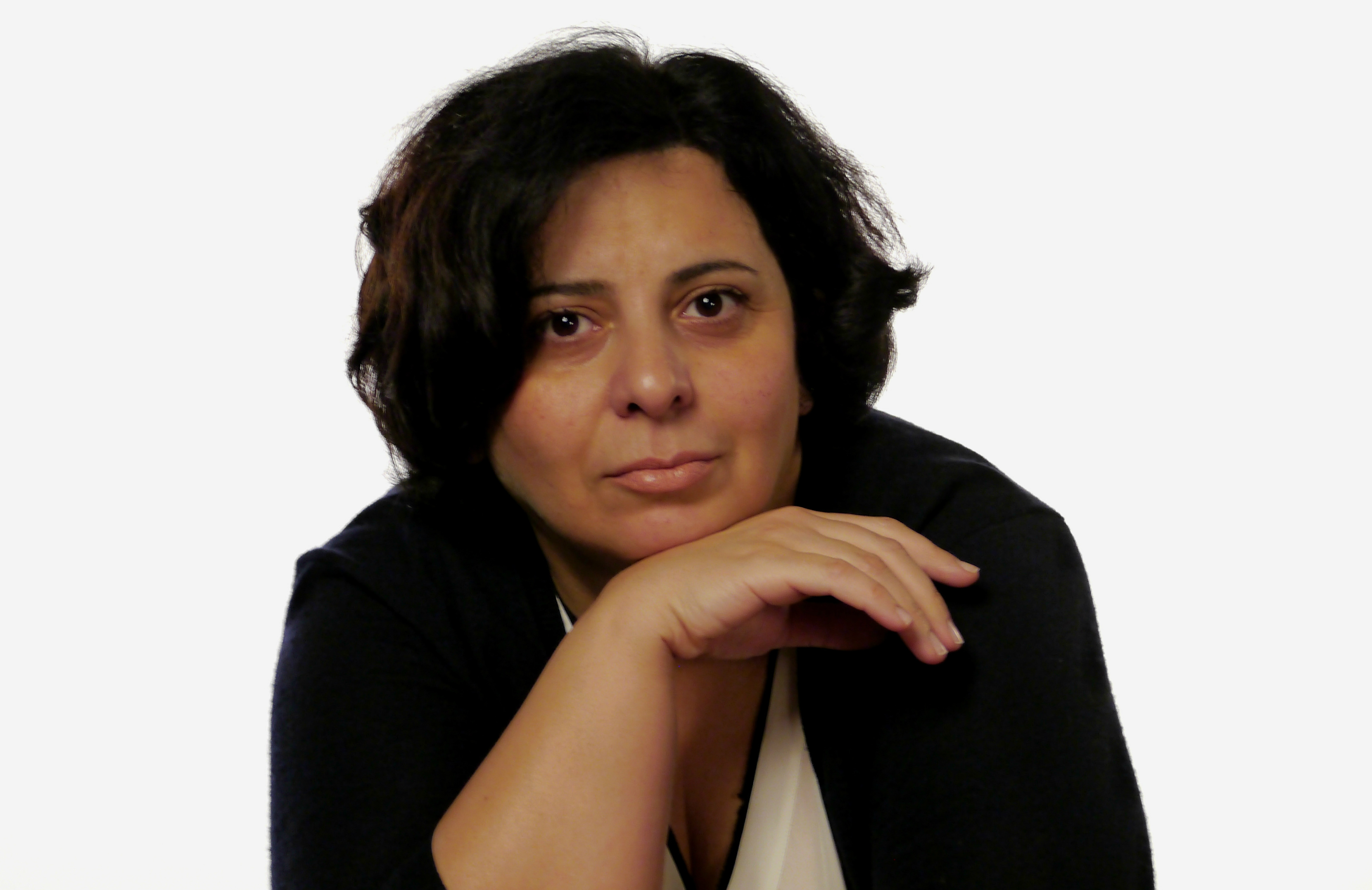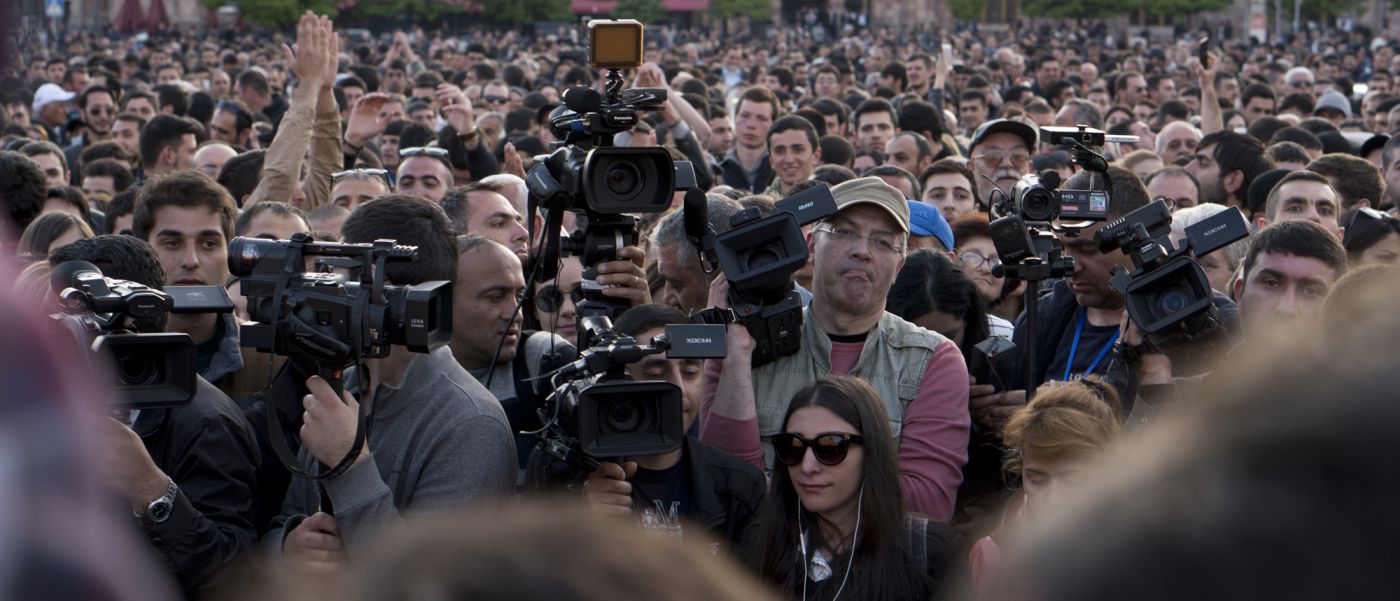For years, media outlets and social networks have been “ensuring” a stable atmosphere. At first glance, within the guise of free journalism, the public was provided with desired news and analysis. But starting in April, during the movement, objective media proved its supremacy.
Thanks to the live broadcasts of the protests, night sit-ins and marches, gradually, everyone was involved in the going ons.
Back in the French Square, while the streets were in a state of being closed, yet there were only a few people who had gathered, my colleague Armen Hovhannisyan said that live broadcasts were getting in the way of making the crowd bigger. People were watching the revolution channel from home, yelling like they would during a soccer game, as to which building they should take over, where they should go next, what demands they should make etc. And I agreed at the time.
Now, when we talk about it, looking back on what happened, one thing became quite clear. Providing information via continuous live broadcasts brings the dissatisfied society to one critical point, after which everyone, or at least the overwhelming majority, begins to turn off the “revolution channel,” and join the protests and marches, because they consider impossible not to take part.
Objective and uninterrupted news, unwittingly becomes the most influential form of propaganda.
The third engine of the revolution
If we we had to rank them, then the first two, maybe unsuccessfully formulated, but conventionally named engines are Nikol and students.
They were small in number, and few people believed in their success.
The third engine was objective news which, day by day, undetectably added to the still small hope and to the numbers of participants in Nikol’s and the students’ movement.
“But could something work out?” The desperate and epic question hour by hour was subject to change. At first, the question mark was dropped from this epic and chronic, desperate sentence, however the phrase “but it could” was still running across people’s minds like scrolling subtitles with dark elements.
On the last day of the meeting at the French Square, during Nikol’s speech, among the students’ completely confident noise, you could hear the very reasoned (however, unharmonious with the general mood) questions of a couple around their sixties, even louder.
Nikol pointed out the names of the streets and main highways which needed to be closed. There were many disbelievers, myself included.
The students carried out these activities, as though they had been getting a higher education in the best foreign universities, studying courses on how to shut down highways.
When objective media reported videos from different parts of the city, as to how the students carried out their activities, I accidentally encountered the person from the day before at the French Square, who would respond to every one of Nikol’s sentences with a strict and logical, yet chronically desperate and loud criticism. While watching the live broadcast on their phone, they were rushing to the street where, at the time, the students were struggling.
By seeing the triumphant march on the live broadcast, it’s hard for a frustrated person to stay indifferent and they gradually are no longer satisfied with the status of simply being a compassionate audience member.
Upon seeing violence, some feel safer by not being in the epicenter of where the violence is taking place, others simply find it impossible to remain an audience member, when their peers are trying to express everyone’s, including their own, frustrations and are being subjected to violence.
Gradually, the latter group was increasing.
Even the most interesting live broadcasts at some point were no longer consuming the interest in the revolutionary mood of those who were in the state of being an audience member and brought them to the next stage of being a participant.
The basis of all this, of course, was the existence extended unlawfulness, without which no direct or indirect broadcast couldn’t have had any effect either strong or a weak.
During the months of April/May, our unbiased media defeated the vicious network that had been driven for years by skillful propaganda, and proved that the best “propaganda” was unbiased news.
All of us are journalists
For at least a few days, this was true.
At the Tumanyan-Teryan crossroads, during the acts of violence by police officers, housewives living in those buildings (whom I know by face) went live since at that moment, there were no video media representatives there.
They were trying with one hand to prevent the police officers from arresting protesters, and with the other hand were trying to conduct the previously unstudied work of a journalist.
For a few days, the public were continuously journalists to some extent, and in many cases, police officers stopped committing acts of violence in order to avoid being recorded on video.
At one point, the media provided a platform for citizens to upload their videos.
The professional and unprofessional merged, since that is what the scale of tension and danger demanded.
Of course, we owe a lot to technology for this opportunity, but also to those women and men who had never done that work and who did it bravely and out of the necessity of the situation.
There were days when everyone was a journalist and a citizen.
Consequently, happy World Press Freedom Day to all of us, both to professional and “unintended journalists.”
And our respects to our professional friends, who’s whispered, dignified and unbiased voice we have had the honor to hear during all the marches, runs, and acts of violence.
Objective news has won.
Lusine Hovhannisyan
Photographs by Hakob Hovhannisyan







